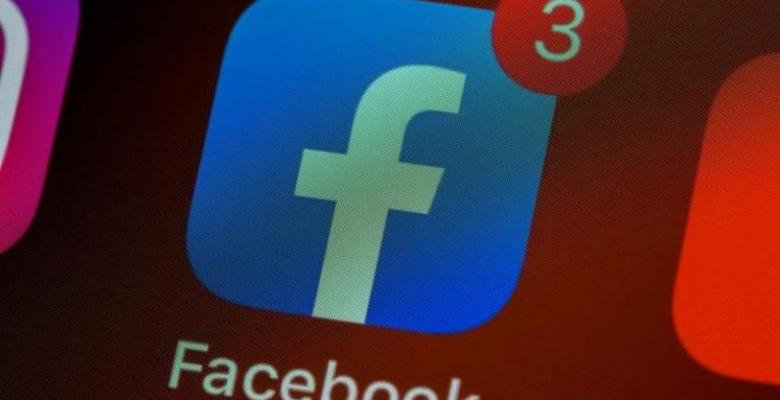The Facebook Papers and Subversion in Cuba
especiales

The release of the so-called “Facebook Papers,” a collection of documents published by a consortium of 17 news media, among which we can find CNN, New York Times, and Washington Post, put again salt on the wound on the role played by this social network, which has become a machine to spreading hatred.
The new disclosures added details to the leaks of former company employee, Frances Haugen, released a few weeks ago on The Wall Street Journal and repeated in congressional briefings in the U.S. and the British Parliament.
Now we know about the company policies, which rather gives priority to money at the expenses of misinformation, lack of control, and the absence of precautionary measures, which resulted, for instance, in the violence of pro-Trump hordes that stormed the U.S. Capitol back in January 6th, 2020.
According to the documents, after the U.S. presidential elections held last November, the company fell into laziness and deactivated the precautionary measures that had been taken to avoid chaos on election day. Many of the workers who had been working for months prior to elections in the prevention of fake news and hatred content, took a leave of absence or just changed jobs, reverting several rules adopted to avoid chaos on election day.
The new disclosures naked the fact that this social network barely devotes resources to combat fake news outside the U.S., and its effectiveness is almost zero in developing countries such as India, the country with largest number of Facebook users worldwide as of now.
A report drawn up by the company itself confirms that in 2020, 84 % of actions against fake news in both Facebook and Instagram occurred in the U.S., despite most of their users live outside the U.S.
In addition to this, the “papers” offers more details on the lack of resources allocated by the company to remove hatred content while highlighting that Facebook reduced the time that human moderators spend to check the users’ complains in this regard.
But so far, nothing has been said in the documents about the use of Facebook as a media weapon against nations not aligned with the interests of the U.S.
This claim, on such company behavior, was made a few years ago by another former employee, Jaron Lanier, in his book “Ten Arguments to Delete Your Social Media Right Away.” In the Chapter “The Arab Spring” the author confesses:
"The Arab Spring was an occasion for hearty self-congratulation in Silicon Valley. We claimed it as our glory at the time. "Facebook Revolution" and "Twitter Revolution" were common tropes back then." "We gathered in front of big screens watching kids in Tahir Square in Cairo taking on a despotic government and we were in love. We celebrated as ordinary citizens used social media to tell NATO where to target strikes. Social media put a modern army at the fingertips of ordinary users."
Although ten years have passed after the Arab Spring, the Facebook policy in this regard has not changed much. And we have the example of Cuba.
Such is confirmed by someone who seems to be okay with the use of Facebook as an instrument of spreading hatred and terrorism: Cuban blogger Yoani Sánchez.
According to the expert on the subject —a made-up character under Bush’s administration to serve as a mouthpiece of the anti-Cuban propaganda in social networks: “When the civil demonstrations occurred in Cuba last July 11th, the Facebook accounts and their functionality to streaming live were both fundamental for the people, whose voice had been gagged for so long. The convergence built in the cyberspace, in a country where the right to associate is severely limited, broke the barrier of mistrust and fear that had paralyzed citizens until then.”
In her comment, published on the German media Deutsche Welle and confirming the subversive role played by this nest of hatred named Facebook, she added:
“The social networks and the instant messenger service have served as the most important scenario for this rebellion. The Archipiélago platform, main promoter of the civic demonstration scheduled for upcoming November 15th, has made the most out of this digital social network to gather 30,000-plus members. To them, Facebook has been the only possibility to meet and debate.”
This “civic demonstration” that the also “freelance journalist” refers to, aims to replicate such “rebelliousness” —violent actions that took place last July 11th in Cuba, convened via Internet at the “command” of the empire master with the goal, in a very opportunistic and coward way amid a world pandemic, to tighten and justify the blockade that for more than 60 years the U.S. maintains on Cuba. Another attempt to implement, wishing for its success, another Arab Spring in Cuba.
Her faith in the capacity of Facebook algorithms to hack the minds with hatred is embraced by the annexationist anti-Cuban mafia based in Miami, which after the July 11th events, has not stopped in demanding President Biden, in addition to a military intervention, the execution of a plan to offer free Internet to the Cuban people to allegedly outsmart the “censorship” of the Havana regime.
Actually, since the days of the Green Wave in Iran, the blogger and her friends in Miami —with the help of the “rightful” greed of Facebook and other social networks— dream about installing a “regime change” in the island as well as the prosperity found in “peaceful democracies” now prevailing in countries like Libya and Syria.
Translated by Sergio A. Paneque Díaz / CubaSí Translation Staff













Add new comment